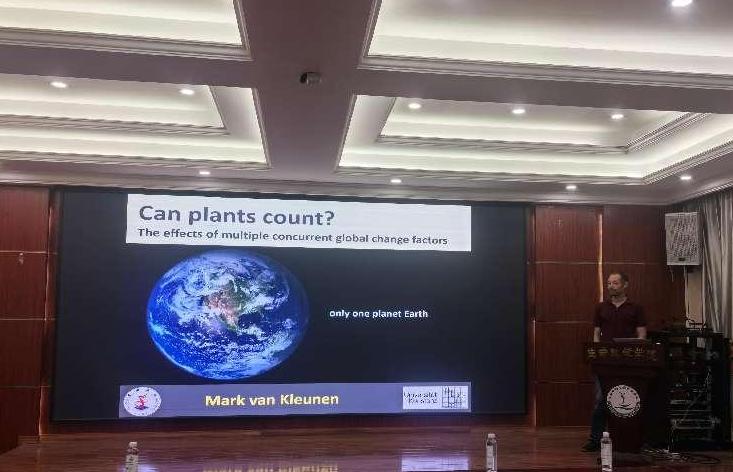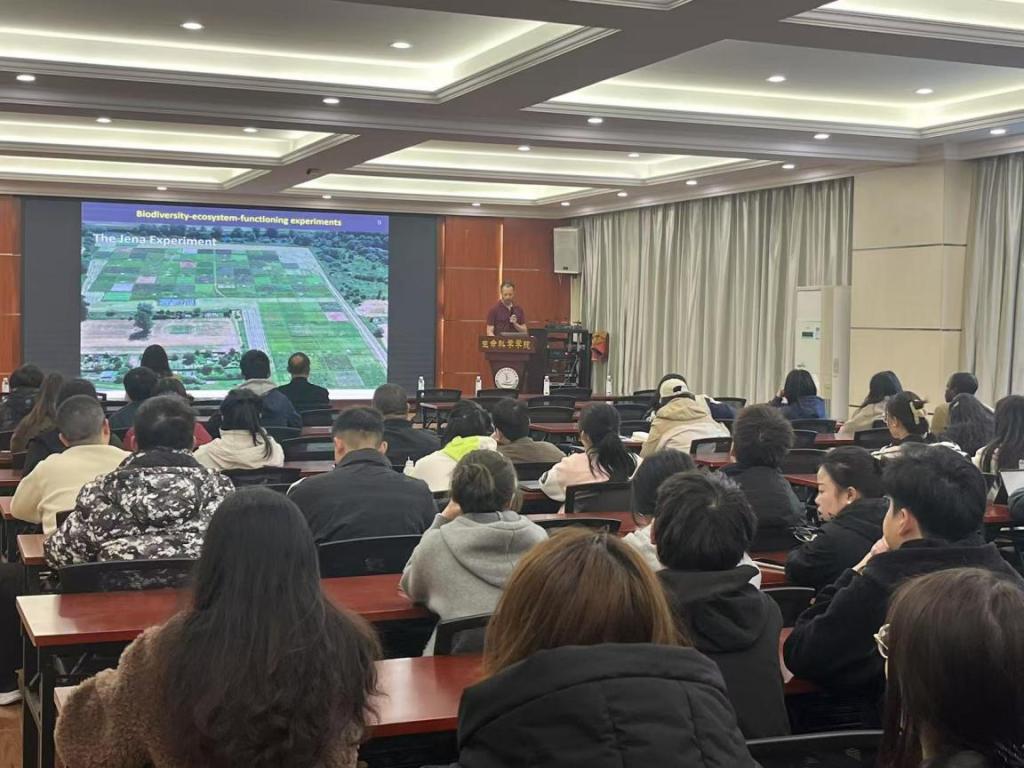Professor Mark van Kleunen from the University of Konstanz, Germany, and Adjunct Professor at the Institute of Global Change and Evolutionary Ecology at TU’s Advanced Research Institute, was invited to present a lecture titled “Can plants count? The effects of multiple concurrent global change factors” at the School of Life Sciences on March 3. The event was chaired by Zhao Kai, Dean of the School of Life Sciences, with attendees including Vice Dean Zong Enmin, faculty representatives, and graduate students.

Academic lecture
Focusing on the systemic impacts of multiple global change factors on plants, the lecture comprised three sections: (1) effects on soil ecology, the model plant Arabidopsis thaliana, and grassland ecosystems from factors such as warming, drought, microplastic pollution, and elevated CO₂; (2) differential impacts on native vs. invasive plant species (incorporating meta-analyses and individual experiments); and (3) effects on plant-soil feedback mechanisms (e.g., soil chemistry, bacterial, and fungal communities).
The content featured the latest globally published research and unpublished findings from Professor van Kleunen’s team, offering rich insights and diverse formats that hold significant implications for invasion ecology research. Following the lecture, attendees engaged in in-depth discussions with Professor van Kleunen on topics of mutual interest.

Professor Mark van Kleunen delivers a lecture
Expert Profile:
Professor Mark van Kleunen is an internationally renowned ecologist and evolutionary biologist, serving as a Full Professor of Ecology and Chief Scientist of the “Ecology and Evolution Research Group” at the University of Konstanz, Germany. He concurrently holds the position of Chief Scientist at the Institute of Global Change and Evolutionary Ecology at Taizhou University’s Advanced Research Institute. His research focuses on biological invasion mechanisms, plant adaptive evolution, and global change impacts on biodiversity, with pioneering contributions in invasion biology. He established the Global Naturalized Alien Flora (GloNAF) database, integrating distribution and ecological data for over 16,000 alien plant species worldwide, providing foundational resources for invasion ecology research. He has published over 300 papers in top journals including Nature, Ecology Letters, and PNAS, with over 20,000 citations (Web of Science) and an H-index of 75. He leads multiple international collaborative projects funded by the German Research Foundation (DFG), advancing cross-continental plant adaptability research.